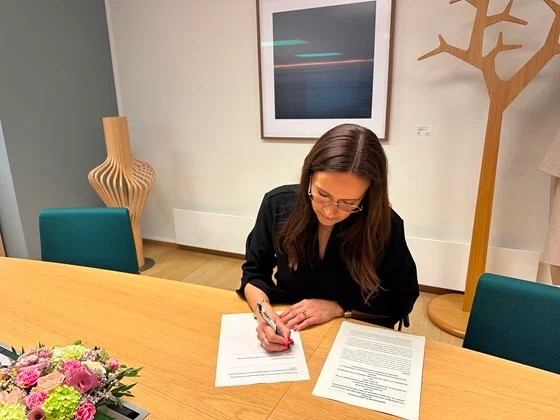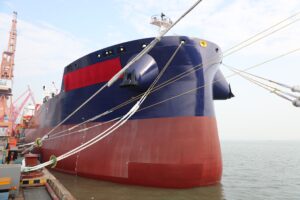
The Norwegian government announced that it will follow neighbouring European countries in making insurance checks on oil tankers navigating its waters.
Beginning August 11, foreign-registered oil tankers operating within Norway’s economic zone will be asked to voluntarily disclose their insurance details.
Norway is introducing a practice where foreign-registered oil tankers in the Norwegian economic zone will be called to voluntarily provide information about their insurance. The country’s coastal and maritime authorities will now collect and check the insurance information.
According to the new regulation, the Norwegian Coastal Administration will handle the calls to vessels, while the Norwegian Maritime Directorate will verify the provided information.
The mechanism, will initially be implemented for a six-month period, starting on August 11, before being assessed in collaboration with -among others- maritime industry stakeholders.
“The government takes the challenges related to the shadow fleet seriously. This type of traffic poses an increased risk to both the environment and safety at sea, while also helping to finance Russia’s illegal warfare,” said Norway’s minister of fisheries and ocean policy Marianne Sivertsen Næss.
Several countries, including Denmark, Finland, Sweden, Germany and the United Kingdom, have already introduced similar practices.
The coordinated approach helps ensure broader coverage of control measures across Northern European waters.
Marianne Sivertsen Næss has called for an industry meeting on August 28 where both employer and employee sides will be present to discuss this measure, among other topics.
The Baltic Sea waters have become the latest battleground in the West’s economic standoff with Russia. Germany and Sweden are already enforcing insurance checks on tankers to combat the ‘shadow fleet.’
Germany authorities began questioning passing tankers about their insurance cover against oil pollution damage.
“German authorities have started asking tankers in transit to verify that they carry valid insurance cover for oil pollution damage,” the German federal foreign office said.
The ships concerned are those travelling eastwards through the Fehmarn Belt. Often, little is known about the insurance cover these vessels have, as they steer clear of reputable insurance companies and European ports.
Sweden has already introduced similar practices. The Swedish Coast Guard and Maritime Administration are tasked with collecting insurance information not only from ships transiting Swedish territorial waters or the exclusive economic zone, but also on those that call at a Swedish port.


